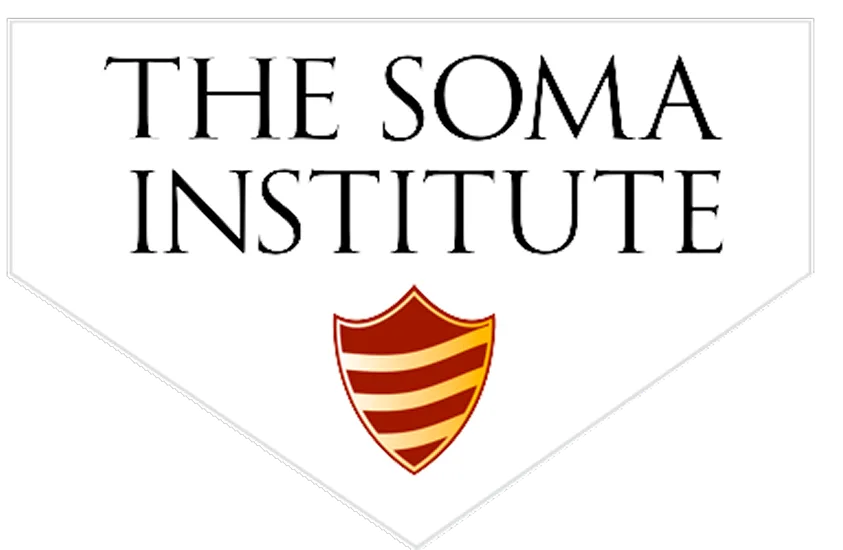By Joan Hannant, Founder & CEO of The Soma Institute
- Clinical massage therapy can enhance post-surgical recovery by reducing scar tissue, improving circulation, and easing muscle tension.
- Techniques like effleurage and lymphatic drainage can improve circulation, reduce swelling, and accelerate healing after surgery.
- Deep tissue massage, trigger point therapy, and gentle stretching can alleviate muscle tension and pain, improving comfort and mobility.
- Clinical massage therapy also supports emotional well-being by reducing stress and enhancing mood, contributing to a holistic recovery process.
Clinical massage therapy is becoming an increasingly valuable component of post-op recovery, offering numerous benefits that support the body’s healing process. Massage therapy after surgery can be an essential part of a multi-faceted approach to recovery, helping individuals regain function and comfort more effectively. Post-surgery massage benefits the recovery experience by reducing scar tissue, improving circulation, and easing muscle tension—all contributing to faster and more effective healing.
Enhancing Healing by Reducing Scar Tissue
After surgery, the body naturally forms scar tissue as it heals. However, excessive scar tissue can lead to restricted movement, discomfort, and aesthetic concerns. Clinical massage therapy helps reduce the formation of dense scar tissue, making it more pliable and flexible. Techniques such as myofascial release and cross-fiber friction are used to break down adhesions and remodel scar tissue, encouraging more functional healing.
The manipulation of scar tissue not only improves the appearance of the scar but also helps restore range of motion by reducing stiffness in the affected area. By working with a trained clinical massage therapist, patients can experience enhanced flexibility and a reduction in the complications often associated with scar tissue build-up.
Improving Circulation for Optimal Healing
Good circulation is key to any successful recovery. Blood flow delivers oxygen and nutrients to tissues, which are essential for healing, while also removing waste products from the body. Clinical massage therapy offers significant benefits after surgery by improving circulation in areas affected by surgery, ensuring that nutrients are efficiently delivered, and toxins are effectively cleared from the body.
Techniques such as effleurage, a type of light, sweeping stroke, are particularly effective for stimulating blood flow and enhancing lymphatic drainage. Increased circulation not only promotes quicker healing but also helps in reducing inflammation and swelling, common challenges during the post-surgical period. By aiding the lymphatic system, clinical massage therapy helps the body eliminate excess fluids, contributing to reduced discomfort and faster recovery. According to Cedars-Sinai, lymphatic drainage massage can assist with reducing swelling, improving circulation, and enhancing the healing process after surgery, making it a beneficial addition to post-surgical recovery (Cedars-Sinai, 2024).
Relieving Muscle Tension and Alleviating Pain
Surgery often leads to muscle tension, either directly as a result of the surgical procedure or indirectly due to compensatory movements and postural changes during recovery. Clinical massage therapy is highly effective in easing muscle tension, which in turn can help reduce pain and improve comfort levels for patients.
Therapeutic techniques such as deep tissue massage, trigger point therapy, and gentle stretching can be used to relieve muscle tightness, minimize pain, and prevent long-term postural imbalances. Relaxed muscles also contribute to improved sleep quality, which is crucial for overall recovery. By addressing areas of tension, clinical massage helps patients regain comfort and mobility, allowing them to resume their daily activities more quickly.
Supporting Emotional Wellbeing
In addition to its physical benefits, clinical massage therapy plays a vital role in supporting emotional well-being throughout the post-op surgery recovery process. Surgery and its aftermath can be stressful, often leading to anxiety and emotional discomfort. Massage therapy is well-known for its calming effects, as it helps to lower cortisol levels while increasing serotonin and dopamine—the “feel-good” hormones. These effects can lead to an overall sense of relaxation and improved mood, which is essential for the healing journey.
Patients often find that regular clinical massage sessions not only reduce their physical discomfort but also provide a much-needed sense of relief from the mental and emotional strain that accompanies post-surgical recovery. A positive emotional state has been shown to enhance the body’s ability to heal, making clinical massage a powerful complement to traditional medical care.
Integrating Clinical Massage into Post-Surgical Care
It’s important to note that clinical massage therapy should be integrated into post-surgical care under the guidance of healthcare professionals. A qualified massage therapist will work in collaboration with a patient’s healthcare provider to ensure that massage is safe and appropriate based on the specific type of surgery and stage of recovery. Timing is key, as certain techniques may only be appropriate after a specific period of healing has taken place.
At The Soma Institute, we understand the powerful role that clinical massage therapy can play in the healing process. Our curriculum emphasizes the importance of understanding the unique needs of post-surgical clients, training our students to work safely and effectively to support healing and recovery. By learning specialized techniques aimed at reducing scar tissue, improving circulation, and relieving muscle tension, our graduates are well-prepared to make a positive impact on the lives of those recovering from surgery.
Moving Forward with Recovery
The benefits of clinical massage therapy in post-op surgery recovery are clear—it supports the body’s natural healing process by reducing scar tissue, enhancing circulation, and easing muscle tension. By contributing to faster recovery times and improving emotional well-being, clinical massage therapy serves as a valuable component of a comprehensive post-surgical care plan.
If you are interested in pursuing a career in massage therapy and want to make a meaningful impact on clients recovering from surgery, consider the comprehensive training programs at The Soma Institute. We are committed to equipping our students with the skills and knowledge needed to help others heal, thrive, and regain their quality of life.
Apply online today or take our quiz to see if clinical massage therapy is the right career path for you.
References:
https://www.cedars-sinai.org/blog/lymphatic-drainage-massage-faqs.html
